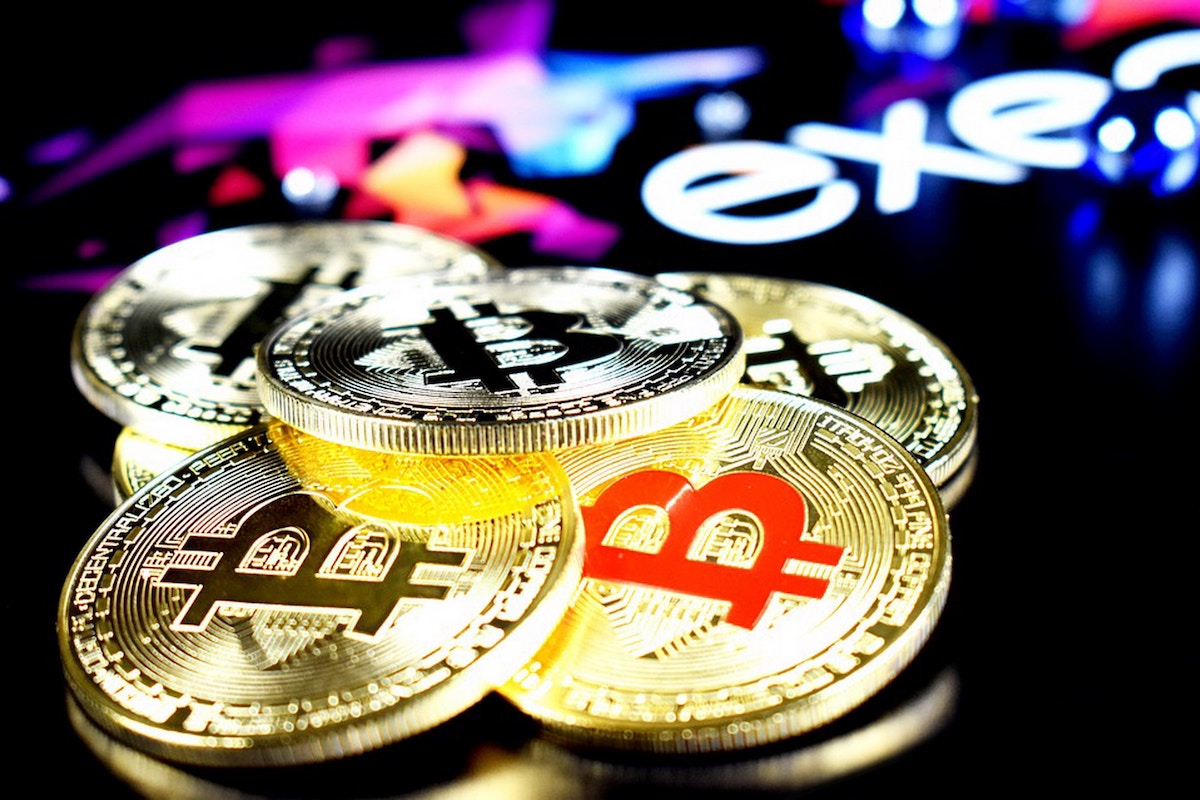Free Speech
How Bitcoin Can Protect Free Speech in the Digital Age
If we want to live in a world where we can buy things and subscribe to media and earn money and publish our thoughts without the fear of being spied on, then we are going to need a digital form of cash. Bitcoin is the foundation for that system.

Think about what happens when you buy a newspaper at a local cafe with cash. The shopkeeper takes your paper money, and gives you the item. They don’t know your name, address, phone number, email, or what you bought yesterday. They are not collecting any data about you. Until now, this level of financial privacy was perfectly normal.
Today, cash is disappearing. In the UK, just 42 percent of transactions are still performed using cash. In America, it’s down to 32 percent. In Sweden, 20 percent. And in South Korea, only 14 percent. In some urban areas—for example, Stockholm or Beijing—electronic and touchless payments are virtually everywhere. In an increasingly cashless world, citizens are losing their privacy and, by extension, their civil liberties.
When you buy a subscription to a political magazine like this one, you almost certainly do so with a credit card or through a platform like PayPal. These payment processors collect data about you that can be sold, leaked, hacked, or handed over to a curious government. When you make an electronic payment today, you necessarily reveal your identity and betray your privacy. Each time you make a digital transaction, your online footprint grows bigger, more telling, and more profitable. If I want to spy on you and understand your behavior, I’d prefer to see your credit card and bank statements than your social media accounts. Your financial behavior says more about you than your words.
In Hong Kong, pro-democracy demonstrators need to use the public transit system to get from home or office to protest point. If students use their traditional ID-linked “octopus cards” to use the metro system, school administrators or employers could obtain their transit data and see that they went to certain protests, leading to punishment. So this summer, Hong Kongers lined up in long queues to buy anonymous transit tickets with cash. Some also used cash to buy burner phones and SIM cards, to participate in Telegram groups without linking their messages to their identities. In this frontline modern conflict between authoritarianism and democracy, cash is playing a key role, along with facemasks, in helping citizens exercise their rights and hold their government accountable.
There is usually never a line at the train ticketing machines. Judging from an overheard convo, it appears that people are reluctant to use their rechargeable Octopus cards for fear of leaving a paper trail of them having been present at the protest. pic.twitter.com/s1rsgSnCqL
— Mary Hui (@maryhui) June 12, 2019
But what happens when cash disappears, as we know it will in the coming decades? Children born today will most likely not use hard currency in their daily adult lives. Paper money will eventually become a curiosity, a fossil from the pre-digital age. In this looming future, is a global financial surveillance state inevitable? The answer might be a tragic and certain yes, were it not for one extraordinary invention.
On October 31, 2008, in the middle of a global financial crisis, a pseudonymous individual or group of people going by the name of Satoshi Nakamoto released the Bitcoin white paper onto a cypherpunk message board, suggesting that a peer-to-peer digital cash system was possible. Several months later, on January 3, 2009, Satoshi launched the Bitcoin software into the world.
With the Bitcoin network, you can send money to anyone on earth, in minutes, without permission from a central authority. No one—not even a nation state like China or the United States—can censor your transaction. Addresses are pseudonymous, and with proper operational security, you can approximate the nature of a cash transaction and transfer funds to others in a way that is difficult to link to your identity. You don’t need an ID or a bank account to use Bitcoin, as the software is open source and permissionless. Anyone can receive Bitcoin from you at this very moment—all they need is a smartphone with internet access so they can download a wallet capable of receiving your transaction. Think about a Bitcoin wallet as a financial avatar.
In a world filled with increasing economic controls, instability, and surveillance, there are more than a few examples of how Bitcoin is changing the game. In China, citizens are buying Bitcoin as a confiscation-resistant and capital control-resistant store of value. To unpack: Bitcoin is a much better way to store money in extreme circumstances when compared to something like gold or fine art, which is clunky and hard to transport. Your Bitcoin isn’t stored anywhere physical, but rather lives on the internet, and can only be accessed with your private key. This password is something you can put on a USB stick, write down on a piece of paper, or even memorize in your head.
Inside Iran, individuals are circumventing sanctions with Bitcoin. Today, if you’re in London, for example, and want to send money to your family in Tehran, you don’t have many—if any—options given the banking restrictions. But with Bitcoin, you can send thousands of dollars to family in minutes, and then they can tap into Iran’s growing peer-to-peer Bitcoin marketplaces to exchange the Bitcoin you just sent them into fiat currency to buy what they need.
For independent media or human rights groups, Bitcoin will become an increasingly important way to defy government control. For example, in Russia, when Vladimir Putin wants to shut down an NGO, he closes its bank account. But he cannot prevent you from receiving a Bitcoin payment. Likewise, a major Hong Kong activist organization is having its bank account closed down by HSBC. But there’s nothing Beijing can do to stop anyone from financing the Hong Kong protests with Bitcoin.
And in Venezuela, savvy entrepreneurs and students have been using Bitcoin as a lifeline and a way out of hyperinflation. Some are able to earn an income in Bitcoin from companies abroad by doing software work; others receive Bitcoin from family in the U.S. and use it like a savings account, relying on websites like LocalBitcoins to convert their Bitcoin into bolivares when necessary to buy what they need.

These are just a few examples, and more continue to surface. In the past few months, demand for Bitcoin has risen in Lebanon and Argentina, as those countries suffer through economic turmoil, high inflation, and banking controls. By some counts, the country in the world with the highest Bitcoin-per-capita ownership is Turkey, where citizens have to deal with a crashing lira and an unstable authoritarian leader. And in Palestine, individuals are starting to rely on Bitcoin to do international commerce and to receive money from family abroad.
True, in America and Europe, we don’t have the same kind of bank closures, steep inflation, and existential economic risk. But individuals and organizations have been de-platformed from payment processors like Patreon on the basis of their opinions. If you can’t publish your thoughts and earn income without needing to seek approval from political gatekeepers, then free expression and, by extension, democracy, will slowly die.
An important thing to understand is that Bitcoin is a “base” money, and directly competes with other base monies like gold or the U.S. dollar. Just as people invented payment mechanisms to scale the number of transactions possible with these monies (paper notes or Visa enabled a much higher volume of global commerce than gold bars or cash as second layer settlement solutions), technologists are inventing payment mechanisms to scale the number of transactions, improve the ease of use, and enhance the privacy of Bitcoin today.
One of these is Lightning, an open-source software project that uses similar encryption methods to the Tor Browser, making your Bitcoin payments even harder to surveil. Imagine, in the near future, going to Starbucks or buying something on Amazon with a touchless digital transaction that has the final settlement and anonymity features of a cash payment. Your daily financial activities could be private, and you could stop the growth of your digital footprint, making it harder for companies to exploit you and harder for governments to do illegal bulk surveillance. If Lightning matures properly (a big if, but a potential one), then it could take digital cash mainstream and make a serious dent in the advance of surveillance capitalism and mass state surveillance.
Before you say “the authorities would never allow that”—ask yourself, why not? Cash is still a key part of the world economy, and even today, there is a multi-billion dollar global gift card market. Legally and morally speaking, Bitcoin payments aren’t very different from payments made with gift cards bought with cash. So exercise caution when banks and governments say that Bitcoin is dangerous because it makes it harder for them to monitor your activity. After all, the average person’s daily transactions were, until very recently, private, and that was normal.
Consider how your daily life has digitized in the past 20 years and start thinking about how this trend will continue into the future. If we want to live in a world where we can buy things and subscribe to media and earn money and publish our thoughts without the fear of being spied on, then we are going to need a digital form of cash. Bitcoin is the foundation for that system.
Alex Gladstein is Chief Strategy Officer at the Human Rights Foundation, a non-profit that supports civil liberties in authoritarian societies. You can follow him on Twitter @gladstein
Photo by Clifford Photography on Unsplash
CORRECTION: This article originally stated that Bitcoin software was launched on January 8 not January 3.






